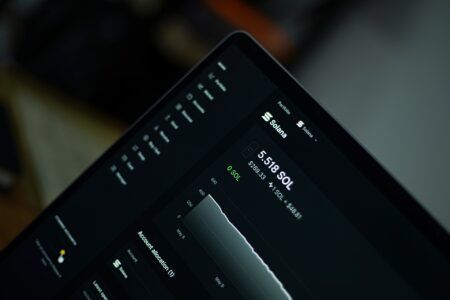South Korea’s reserve bank has warned other nations about the inherent risks of introducing a central bank digital currency (CBDC), according to local media outlet Yonhap News Agency.
The warning from Korea’s central bank (issued on February 7th) comes shortly after the financial institution said it would not be launching its own CBDC. CBDCs, which may also be referred to as state-backed or government-controlled digital currencies, may involve using a distributed ledger technology (DLT)-based transaction system, in order to create a digital version of a country’s fiat currency.
Exploring The Feasibility Of CBDCs
However, many analysts have criticized this approach – as they argue that blockchain-based currency models are more appropriate for decentralized cryptocurrencies. Despite these arguments, there are currently several countries that are looking into the feasibility and desirability of launching a CBDC. South Korea, however, decided last month that it would not be issuing a CBDC.
After investigating the potential benefits of creating a CBDC through a six-month consultation process (commissioned by South Korea’s central bank), Korean authorities are seemingly not interested in issuing a state-controlled digital currency. In an announcement warning other central banks, South Korea’s banking officials noted that launching a CBDC might lead to mass withdrawals of funds from private banks. This could also result in significantly lower liquidity and higher interest rates, the reserve bank cautioned.
Kwon Oh-ik, one of the main authors of Bank of Korea’s (BOK) report, explained:
[A] CBDC is a kind of a BOK-issued bank account. People trust it more than one in a commercial bank. Demand deposits are one of the biggest sources of loans by banks. When people pull out their money, banks raise rates, or lower the reserve ratio, to secure more funds.
Maintaining Local Ban On ICOs, Introducing Taxes On Cryptos
In addition to issuing a warning regarding CBDCs, South Korea’s government has decided to maintain its ban on initial coin offerings (ICOs). The nation’s financial regulators remain concerned about the numerous scams carried out by companies under the guise of ICOs. Although South Korean citizens are allowed to participate in ICOs conducted abroad, some firms have reportedly taken advantage of this loophole by conducting token sales in the East Asian country after registering their ICOs overseas.
In early December 2018, South Korea’s government announced its plans to impose taxes on income generated from ICOs and cryptocurrency trading. According to a document submitted last year by Hong Nam-ki, the South Korean finance minister, the new taxation plan would be implemented based on the nation’s current taxation system and international discussion pertaining to the topic.








